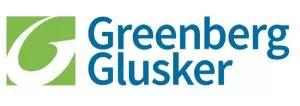- within Intellectual Property topic(s)
- with Senior Company Executives, HR and Finance and Tax Executives
- in India
- with readers working within the Media & Information, Retail & Leisure and Utilities industries
The opening brief in a first-of-its-kind appeal of an AI copyright infringement case was recently filed, framing the issues that could result in legal precedent reshaping the AI industry.
In Thomson Reuters Enterprise Centre GMBH v. Ross Intelligence Inc. (No. 1:20-cv-613), 3rd Circuit Judge Stephanos Bibas, sitting by designation in the District Court of Delaware, held that AI company Ross' use of Thomson Reuters' copyrighted works to train an AI system did not constitute fair use.
Ross sought to develop an AI-powered legal research tool using Westlaw's headnotes. Ross requested that Thomson Reuters (which owns Westlaw) license Westlaw's headnotes (brief summaries of key legal principles discussed in cases) to train its algorithm. When Thomson Reuters refused, Ross found another way to get this information -- it contracted with a third party, LegalEase, to get training data in the form of LegalEase's "Bulk Memos." These "Bulk Memos" are comprised of "compilations of legal questions" created using Westlaw's headnotes. When Thomson Reuters learned of Ross' conduct, it sued.
Judge Bibas granted summary judgment for Thomson Reuters, holding that Westlaw's headnotes are sufficiently original to qualify for copyright protection and that Ross' use of them did not constitute fair use. In doing so, Judge Bibas likened Westlaw's headnotes to a sculpture, explaining: "A block of raw marble, like a judicial opinion, is not copyrightable. Yet a sculptor creates a sculpture by choosing what to cut away and what to leave in place. That sculpture is copyrightable." Judge Bibas also found that that the fair use defense did not apply because using Westlaw's headnotes in a manner that could compete with Westlaw was commercial in nature and not transformative.
Ross appealed to the 3rd Circuit, and its opening brief frames the issues as follows: (1) Is a short quote or paraphrase of a judicial holding (i.e., Westlaw's headnotes) copyrightable?; and (2) Does the fair use doctrine protect Ross' use of Westlaw's headnotes in LegalEase's "Bulk Memos" that served as training data for an AI legal search engine? Dozens of amicus briefs are being filed that address these and other issues.
These issues might seem case specific. But Ross' brief makes the case that they touch on broader policy concerns hanging over the AI industry, particularly as to fair use. Ross argues that it used an "insubstantial amount" of Westlaw's headnotes, the headnotes "fall far from copyright's core," its use was transformative because the purpose was to "progress[ ] science and technology at once," and its use has no adverse on the market for Westlaw's headnotes "because there is none" as Westlaw does not offer headnotes themselves for sale. Ross also argues that an adverse ruling would disrupt copyright law's purpose -- balancing the rights of creators to protect their works with the public interest in disseminating and accessing information -- and have "sweeping consequences for innovation" in the AI space. Ross warns that its AI system "rests on the same fundamental technology as any AI model," this "technology requires vast quantities of training data," and an adverse ruling "risks ending the American lead in AI development, a lead that is fundamental to economic success and national security."
To underscore that its appeal presents broad issues for the 3rd Circuit to address, Ross' brief heavily relies on two AI decisions that have been issued by the Northern District of California since Judge Bibas granted summary judgment.
In Andrea Bartz et al. v. Anthropic PBC (No. 3:24-cv-05417), Judge William Alsup held that AI company Anthropic's use of books that it had purchased constituted fair use because Anthropic's use of these books to train an AI system was "spectacularly transformative." But Judge Alsup also held that Anthropic's retention of pirated materials to create a "general-purpose" digital library that it would retain "forever" was not sufficiently transformative to constitute fair use.
In Richard Kadrey et al. v. Meta Platforms, Inc. (No. 3:23-cv-03417), Judge Vince Chhabria held that Meta downloading copies of books and using them to train an AI model constituted fair use, including because this use was transformative and Meta imposed restrictions on outputting text from the books. But Judge Chhabria made clear that if the authors had shown evidence of market dilution, they likely would have prevailed.
Ross relies on Bartz and Kadrey for many points in its brief, but perhaps the most significant is its attempt to dissuade the 3rd Circuit from issuing a narrow ruling. Ross argues that Judge Bibas "tried to cabin the scope of its holding by asserting that it was not confronted with 'generative' AI technology," but that this underlying premise was wrong. Ross argues that its appeal asks whether it is fair to use copyrightable material to train an AI model (specifically, that the "fundamentals" of Ross' use of Westlaw's headnotes to train are the same as Bartz and Kadrey), and Thomson Reuters' infringement claims relate to "only the inputs, not the outputs" of the machine learning model (as in Kadrey and Bartz). Ross also emphasizes that the "logic" of Judge Bibas' decision "applies to AI broadly."
The 3rd Circuit will have to decide whether this appeal implicates broader issues impacting the AI industry that it must resolve (as Ross is asking) or whether it can reach a narrower decision. The path ultimately taken by the 3rd Circuit could transform the future of the AI industry.
Originally published by Daily Journal.
The content of this article is intended to provide a general guide to the subject matter. Specialist advice should be sought about your specific circumstances.
[View Source]


